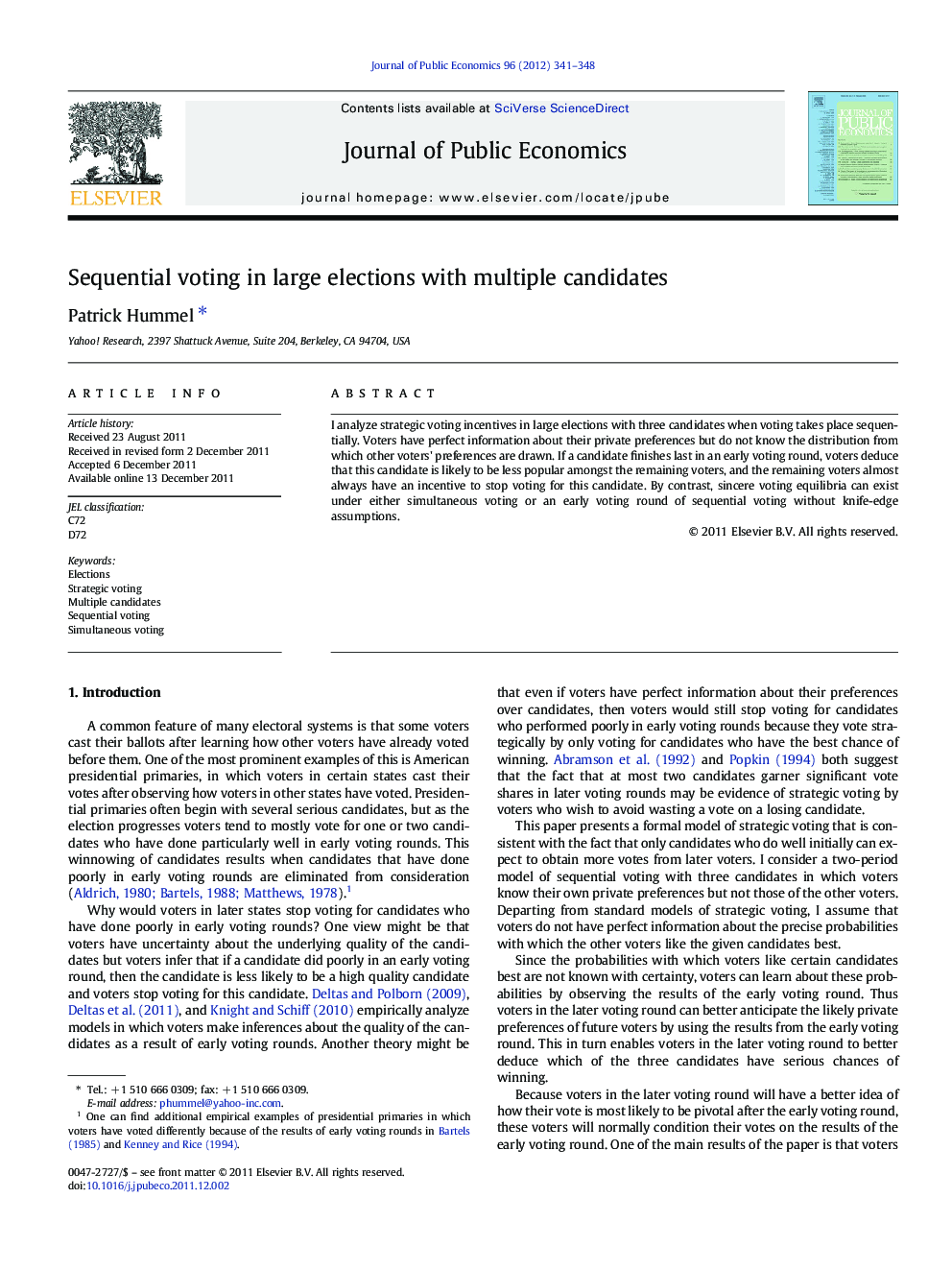| Article ID | Journal | Published Year | Pages | File Type |
|---|---|---|---|---|
| 968983 | Journal of Public Economics | 2012 | 8 Pages |
I analyze strategic voting incentives in large elections with three candidates when voting takes place sequentially. Voters have perfect information about their private preferences but do not know the distribution from which other voters' preferences are drawn. If a candidate finishes last in an early voting round, voters deduce that this candidate is likely to be less popular amongst the remaining voters, and the remaining voters almost always have an incentive to stop voting for this candidate. By contrast, sincere voting equilibria can exist under either simultaneous voting or an early voting round of sequential voting without knife-edge assumptions.
► Voters stop voting for a candidate who performs poorly in an early voting round. ► Sincere voting equilibria can exist in an early voting round. ► Equilibrium predictions consistent with observations from US presidential primaries. ► Sincere voting equilibria can also exist under simultaneous voting.
